محمد
السيد
سعيد
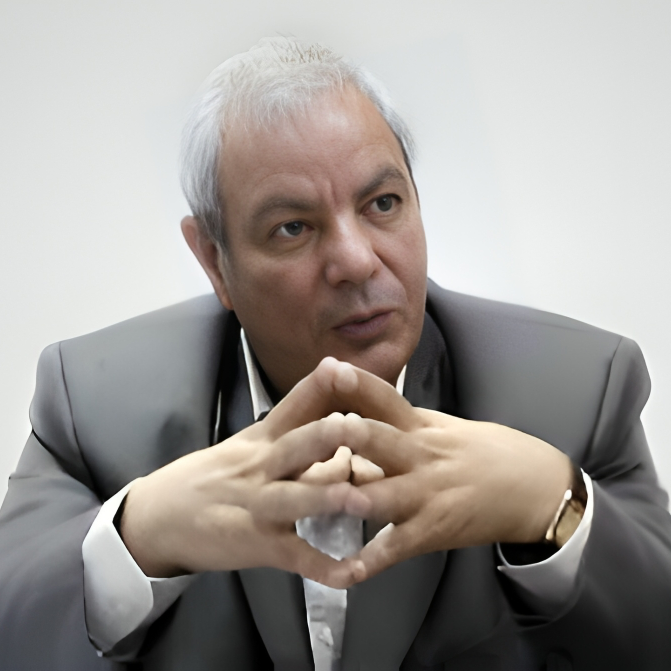
الكاتب والمحلل السياسي والحقوقي
العضو المؤسس لمركز القاهرة لدراسات حقوق الإنسان ومستشاره الأكاديمي.
المسيرة الملهمة
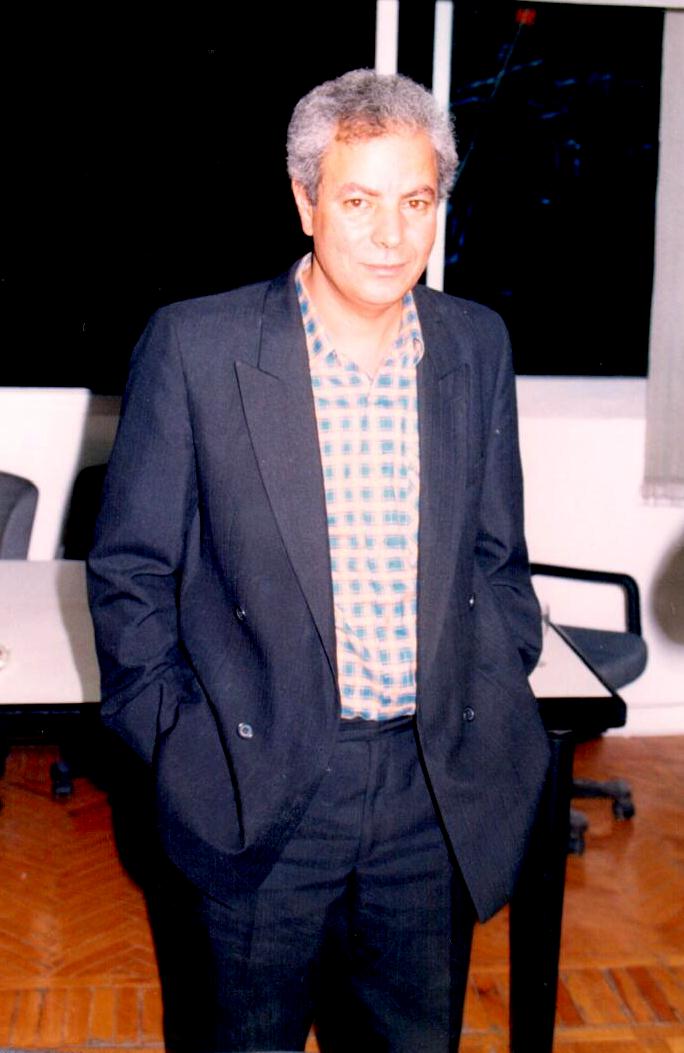 ولد في بورسعيد في 28 يوليو 1950، وسط ثلاثة أشقاء لأب يعمل بهيئة قناة السويس، بينما كانت والدته ربة منزل. تلقى تعليمه قبل الجامعي في بورسعيد؛ ثم غادر للقاهرة، حيث انتقل طواعية من كلية الهندسة إلى كلية الاقتصاد والعلوم السياسية جامعة القاهرة. تخرج منها عام 1972، بعدما انخرط في الحركة الطلابية، وشارك في مظاهرات الطلاب التي اندلعت في نوفمبر1968 احتجاجًا على المحاكمات الصورية لقادة سلاح الطيران بعد هزيمة الخامس من يونيو1967. كما شارك في اعتصام طلاب الجامعة الشهير بقاعة الاحتفالات الكبرى بجامعة القاهرة عام 1972 لمطالبة الرئيس الراحل محمد أنور السادات بإعلان الحرب واستعادة الأراضي المصرية المحتلة. وكقائد طلابي دخل السجن لأول مرة عام 1972 بعد اعتقال أجهزة الأمن لقيادات الحركة الطلابية بسبب مظاهرات الطلبة في يناير من العام نفسه.
ولد في بورسعيد في 28 يوليو 1950، وسط ثلاثة أشقاء لأب يعمل بهيئة قناة السويس، بينما كانت والدته ربة منزل. تلقى تعليمه قبل الجامعي في بورسعيد؛ ثم غادر للقاهرة، حيث انتقل طواعية من كلية الهندسة إلى كلية الاقتصاد والعلوم السياسية جامعة القاهرة. تخرج منها عام 1972، بعدما انخرط في الحركة الطلابية، وشارك في مظاهرات الطلاب التي اندلعت في نوفمبر1968 احتجاجًا على المحاكمات الصورية لقادة سلاح الطيران بعد هزيمة الخامس من يونيو1967. كما شارك في اعتصام طلاب الجامعة الشهير بقاعة الاحتفالات الكبرى بجامعة القاهرة عام 1972 لمطالبة الرئيس الراحل محمد أنور السادات بإعلان الحرب واستعادة الأراضي المصرية المحتلة. وكقائد طلابي دخل السجن لأول مرة عام 1972 بعد اعتقال أجهزة الأمن لقيادات الحركة الطلابية بسبب مظاهرات الطلبة في يناير من العام نفسه.
أتم خدمته العسكرية عام 1975، بعدما شارك في حرب 1973. ويذكر صديقه الكاتب طه عبد العليم في أحد مقالاته، أن سعيد وقع في أسر العدو الإسرائيلي أثناء تنفيذ عملية شبة انتحارية ضمن جنود وضباط بواسل، وقد أخفق العدو في كسر إرادته وإرادة زملائه.
التحق سعيد بمركز الأهرام للدارسات السياسية والاستراتيجية كباحث عام 1975، ثم تقلد العديد من المناصب القيادية بالمركز منها؛ منصب رئيس وحدة العلاقات الدولية، ورئيس تحرير التقرير الاستراتيجي العربي الصادر عن المركز، وصولاً لمنصب نائب مدير المركز، وأخيرًا مستشار للمركز قبيل وفاته.

لم تشغله هذه المناصب وعمله كباحث عن شغفه بمجال الصحافة، إذ ظل طوال مسيرته العملية والعلمية يكتب المقالات للعديد من الصحف والمجلات المصرية والعربية والدولية؛ من بينها جريدة القاهرة، وجريدة الحياة اللندنية، وجريدة الأهرام، والأهرام ويكلى، ومجلة العربي بالكويت، وجريدة الاتحاد بأبوظبي.
حصل محمد السيد سعيد على درجة الماجستير في العلوم السياسية من كلية الاقتصاد والعلوم السياسية بجامعة القاهرة عام 1978. وكان موضوع رسالته الشركات متعددة الجنسيات وأثرها على هيكل النظام الدولي. ثم سافر إلى الولايات المتحدة الأمريكية، حيث حصل على درجة الدكتوراه في العلاقات الدولية من جامعة ولاية كارولاينا الشمالية عام 1984. وكان موضوع دراسته حول 7 تجارب للتطور في إفريقيا. وخلال وجوده في الولايات المتحدة عمل كباحث في قسم العلوم السياسية بجامعة كارولينا الشمالية، وكباحث في مركز التنمية الدولية جامعة مريلاند ،وأستاذ للصحافة بالجامعة نفسها.
في عام 1985 تأسست المنظمة المصرية لحقوق الإنسان، واحدة من أولى المنظمات المصرية غير الحكومية المعنية بمجال حقوق الإنسان. ورغم أن محمد السيد سعيد لم يكن عضوًا مؤسسًا للمنظمة، إلا أنه أنضم كعضو بالأمانة التنفيذية للمنظمة عام 1988، وكان له أثر بالغ في إعادة تشكيل صورة المنظمة ودورها منذ ذاك التاريخ، خاصة في المجال الثقافي والعمل الميداني والعلاقات الدولية.
وبسبب عمله الحقوقي، تم اعتقاله وتعرض للتعذيب لمدة شهر، عام 1989، بسبب تضامنه مع إضراب عمال مصنع الحديد والصلب في حلوان. ومقاله في جريدة الوفد "ظاهرة الضابط الفتوة" الذي أدان فيه اقتحام قوات الأمن للمصنع وإطلاق النار على العاملين. وقد اعتبر زكي بدر (وزير الداخلية آنذاك) المقال مساسًا بشخصه، فأصدر أمر باعتقال سعيد لينضم إلى عدد من المعتقلين، بينهم صحفيين ومثقفين آخرين في سجن أبو زعبل، موجهًا لهم تهمة تشكيل تنظيم شيوعي (حزب العمال) هدفه قلب نظام الحكم.
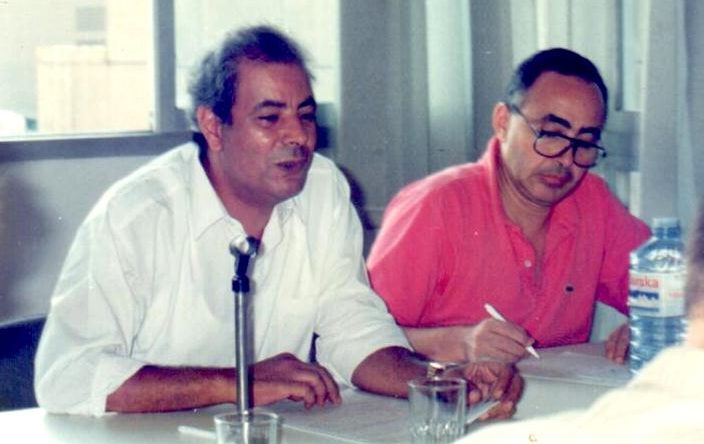 وفي عام 1993، وضع محمد السيد سعيد اللبنة الفكرية الأولى لمركز القاهرة لدراسات حقوق الإنسان، مع شريكه الحقوقي بهي الدين حسن. وقد جاء المركز كاستجابة لحاجة حركة حقوق الإنسان الناشئة آنذاك في المنطقة العربية لخلق وتطوير شرعيتها الثقافية من خلال العمل البحثي المكثّف، وذلك من خلال منظمة حقوقية إقليمية معنية بالأساس بتحليل ودراسة المعوقات التي تحول دون تطبيق حقوق الإنسان في المنطقة العربية. وقد أرسى سعيد فلسفة المركز التي ما زال يتبعها حتى يومنا هذا، محددًا دوره المحوري (حسبما وصفه في كتابه حكمة المصريين) بأنه:
وفي عام 1993، وضع محمد السيد سعيد اللبنة الفكرية الأولى لمركز القاهرة لدراسات حقوق الإنسان، مع شريكه الحقوقي بهي الدين حسن. وقد جاء المركز كاستجابة لحاجة حركة حقوق الإنسان الناشئة آنذاك في المنطقة العربية لخلق وتطوير شرعيتها الثقافية من خلال العمل البحثي المكثّف، وذلك من خلال منظمة حقوقية إقليمية معنية بالأساس بتحليل ودراسة المعوقات التي تحول دون تطبيق حقوق الإنسان في المنطقة العربية. وقد أرسى سعيد فلسفة المركز التي ما زال يتبعها حتى يومنا هذا، محددًا دوره المحوري (حسبما وصفه في كتابه حكمة المصريين) بأنه:
مؤسسة فكرية تستهدف تشجيع الفكر الذي يأخذ على عاتقه الولوج إلى حضارة إنسانية جديدة أو حقبة جديدة تمامًا للحضارة الإنسانية، حيث يعود الإنسان لاحتلال موقعه المركزي في الحضارة، وتُحترم قيم المساواة والحرية والعدالة، وتؤمن بكرامة الإنسان عبر تكريس وحماية حرية الضمير والاعتقاد، وقدسية الجسد والعقل والوجدان، وعدم جواز تعذيب أي كائن حي أو حبسه تعسفيًا، وتعزيز حرية التعبير والتجمع والحق في الصحة والتعليم والغذاء والعمل، وحيث يتم التأكيد على أن الحقوق المدنية والسياسية تدعم الحقوق الاقتصادية والاجتماعية والثقافية، والعكس.
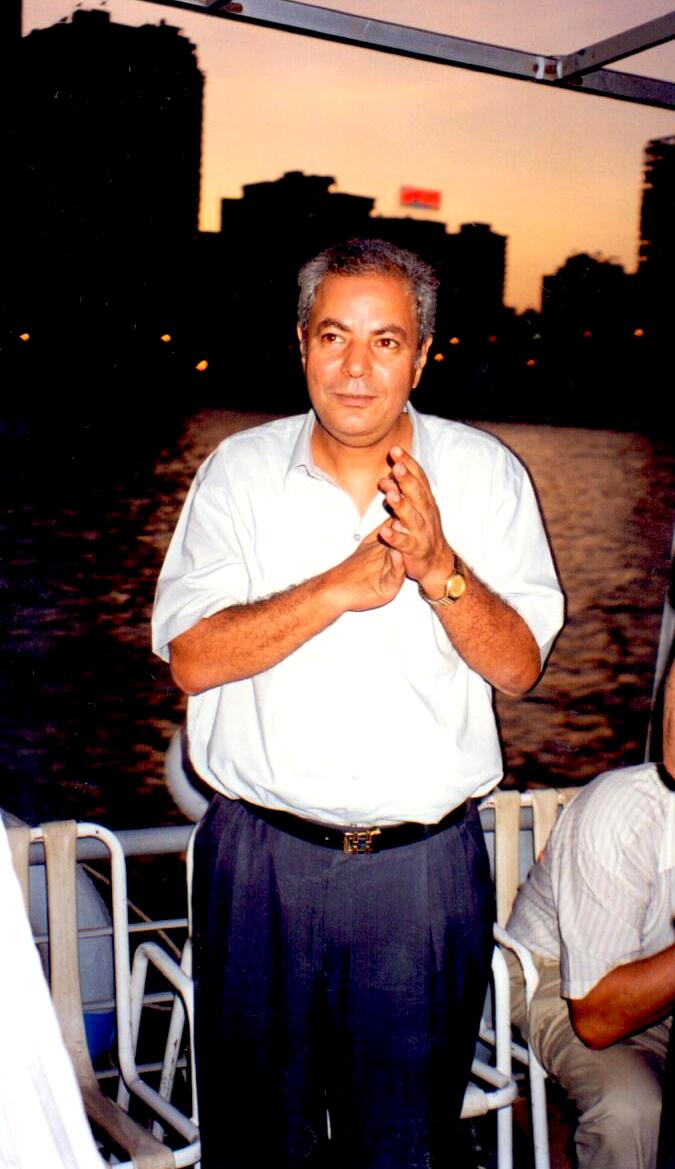 وفي عام 1996، بلور سعيد المرجعية الفكرية لمجلة رواق عربي الصادرة عن المركز، وهي دورية عربية بحثية متخصصة في حقوق الإنسان، استمر سعيد في رئاسة تحريرها حتى وفاته. هذا بالإضافة لإشرافه على بقية الدوريات الصادرة عن المركز، مثل دورية سواسية، ودورية رؤى مغايرة.
وفي عام 1996، بلور سعيد المرجعية الفكرية لمجلة رواق عربي الصادرة عن المركز، وهي دورية عربية بحثية متخصصة في حقوق الإنسان، استمر سعيد في رئاسة تحريرها حتى وفاته. هذا بالإضافة لإشرافه على بقية الدوريات الصادرة عن المركز، مثل دورية سواسية، ودورية رؤى مغايرة.
وبالتوازي، واصل سعيد عمله الصحفي، فأسس مجلة أحوال مصرية (الصادرة عن مركز الأهرام) عام 1998، وتقلد رئاسة تحريرها حتى عام 2003. وفي عام 2002 تقلد منصب مديرًا لمكتب جريدة الأهرام في العاصمة الأمريكية واشنطن. وفي عام 2007 أسس جريدة البديل المستقلة، كي تكون الصوت المستقل المطالب بالعدالة الاجتماعية، تنحاز للقوى الضعيفة في المجتمع ولفكرة المقاومة وجماعات التغيير، حسبما ورد في الوثيقة الأولى لسياستها التحريرية. وقد تقلد سعيد منصب رئيس تحريرها حتى أكتوبر2008.
في سبتمبر 2004 انضم سعيد للحركة المصرية من أجل التغيير (كفاية)، التي تأسست احتجاجًا على سياسات نظام الرئيس المصري الأسبق محمد حسني مبارك، واعتزامه توريث الحكم لنجله جمال مبارك. وفي عام 2005 كان محمد السيد سعيد المثقف الوحيد الذي ناقش الرئيس مبارك بشجاعة عن بعض الحقوق والحريات العامة واحترام الدستور وكان ذلك في لقاء الرئيس مبارك مع المثقفين في معرض الكتاب. إذ طالبه سعيد بدستور جديد يضمن تداول السلطة ولا يجعلها مطلقة في يد الرئيس، ودار بينهما مناقشة طويلة، وفي اليوم التالي أبلغ أحد موظفي هيئة معرض الكتاب الدكتور سعيد بأن كل نشاطاته في المعرض قد ألغيت.
حصل الدكتور محمد السيد سعيد في عام 2006 على جائزة الدولة للتفوق في العلوم الاجتماعية، وفي العام نفسه عمل منسقًا دائمًا لمنظمة اليونسكو بالقاهرة.
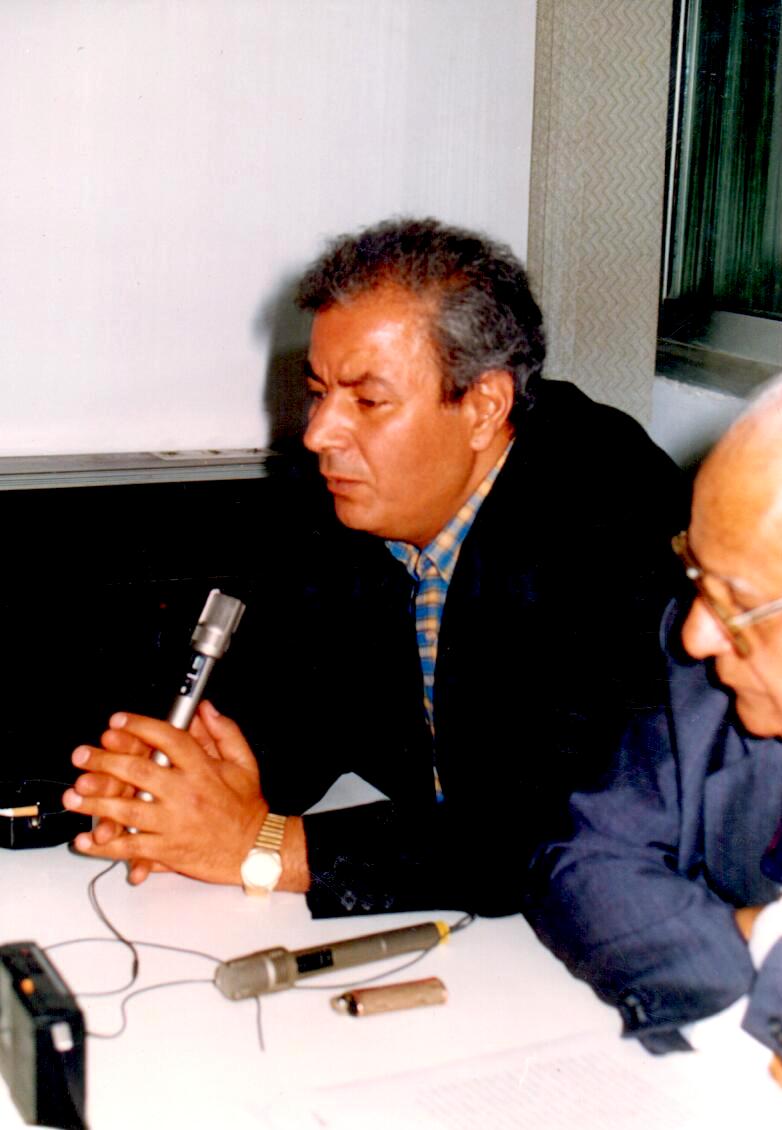
في 10 أكتوبر 2009 توفي محمد السيد سعيد بعد صراع مع المرض امتد لعامين، عن عمر يناهز التاسعة والخمسين عامًا، بعدما عاش مكرسًا حياته لتحقيق العدالة الاجتماعية والدفاع عن حقوق الإنسان، تارة كأحد رموز الحركة الطلابية، وأخرى كفاعل رئيسي في الحركات الاجتماعية والمنظمات الحقوقية المتطلعة للتغيير في مصر. وقد وصف نفسه بأنه «ليبرالي بين اليساريين، ويساري بين الليبراليين».
نعاه مركز القاهرة لدراسات حقوق الإنسان واصفًا مسيرته (بالمسيرة النضالية التي لن تتوقف)، وتصدر نعيه الصفحة الأولى لجريدة الأهرام. كما نعاه كبار الكُتّاب في مختلف الصحف مثل رفعت السعيد، وعلى الدين هلال، ومصطفى الفقى، والسيد ياسين، وعبد العظيم درويش، ووحيد عبد المجيد. وقد تم جمع معظم المقالات التي كتبت لرثائه في العدد (89-90) من دورية سواسية التي كانت تصدر عن مركز القاهرة لدراسات حقوق الإنسان. كما خصصت مجلة رواق عربي عددها الثالث والخمسون لعام 2010 بالكامل لرثاءً مؤسسها ورئيس تحريرها محمد السيد سعيد، وعرض بعض دراساته والرؤى التحليلية لمسيرته النضالية، وذلك تقديرًا لجهوده البارزة في مجال حقوق الإنسان والصحافة وحرية التعبير عن الرأي.
حصل كتابة حكمة المصريين على جائزة أفضل كتاب لعام 2000، والتي تمنحها سنويا الهيئة المصرية العامة للكتاب، وبعد وفاته، تم تكريمه بجائزة ساويرس للثقافة عام 2009
وخلال حياته المليئة بالنضال والإسهامات القيمة، ترك محمد السيد سعيد إرثًا ثريًا في مجال العدالة الاجتماعية، الصحافة، وحقوق الإنسان، مؤكدًا على أهمية الدور الذي يمكن أن يلعبه الأفراد في تحقيق التغيير الإيجابي داخل مجتمعاتهم.
